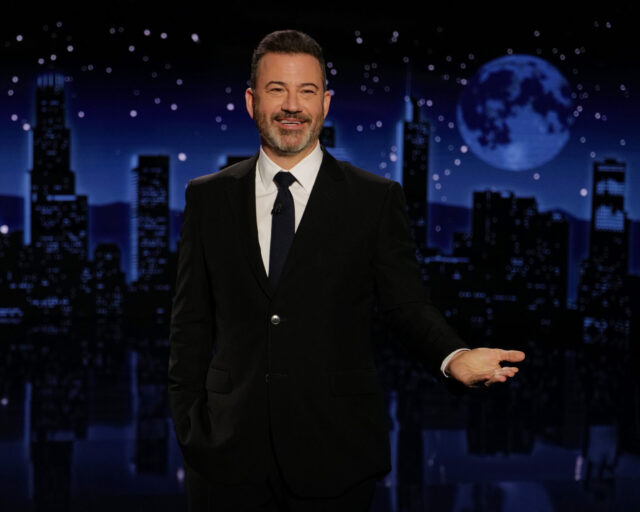Quiet on Set: What the New Documentary Revealed About Nickelodeon’s Golden Years
Trigger Warning: This article discusses topics of sexual harassment and sexual abuse.
Quiet on Set is Investigation Discovery’s latest deep dive into the toxic world of children’s television throughout the late 1990s and early 2000s. The 4-part documentary features first-hand stories from cast and crew members who worked on some of the most beloved Nickelodeon series and reporter insight into what went into the making of these programs.
Throughout the series, viewers are introduced to or reintroduced to the following members: Katrina Johnson (All That), Giovonnie Samuels (All That), Bryan Hearne (All That), Tracy Brown (Hearne’s mother), Leon Frierson (All That), Kyle Sullivan (All That), Raquel Lee Bolleau (The Amanda Show), Jenny Kilgen (writer, The Amanda Show), Christy Stratton (writer, The Amanda Show), Alexa Nikolas (Zoey 101), and Drake Bell (The Amanda Show, Drake & Josh).
Gender and Racial Discrimination
In the first two episodes, “Rising Stars, Rising Questions,” and “Hidden in Plain Sight,” interviewees discussed the abuse they faced on set.
In one instance, the only two female writers on season one of The Amanda Show, Christy Stratton and Jenny Kilgen, faced significant gender discrimination. Prior to even walking into the office, production told Kilgen and Stratton they would have to share the same salary despite their male counterparts earning a sole paycheck. Given that this was their dream—a stable job for a network series—they accepted; however, it only went downhill.
Dan Schneider refuted the claims, stating he had no power over writers’ paychecks.
According to the writers, Schneider would make snide remarks about women, mentioning things like “I don’t think women are funny” and asking if they’re okay with being called “the girls” because he doesn’t like those girls who make a big deal out of things.
Stratton described working for Nickelodeon producer Dan Schneider as “being in a toxic relationship.” At one moment, he could make someone feel like they were on top of the world, and in the next, they were belittled and berated. This is the same sentiment Jennette McCurdy, who was not present in the documentary, wrote in her memoir, I’m Glad My Mom Died.
Both writers described the writers’ room as a fun, comfortable space to be playful, creative, and, most of the time, raunchy. Stratton stated there were times in which Schneider would make bets with writers like when he told her he would give her $200 if she ate two pints of ice cream in front of everyone. After not following up on his bet, Stratton jokingly called him out in another instance and was harshly reprimanded by the producer.
The raunchiness only heightened when Stratton recalled an incident where she told the writers a story about high school, and Schneider reportedly demanded she “bend over the table and tell the story as if she were being sodomized.”
The ladies also mentioned that their personal time, including weekends and after-work hours, was no longer theirs; during the season, all of their time belonged to Schneider. Stratton claimed she took one weekend to go to a concert and another personal day, which allegedly led to her firing, just a few days before season one wrapped.
As for writer Kilgen, Schneider asked to write for season two only if she worked half of the season for free. Although accepted, Kilgen did not stay on for the entire season, as toward the beginning, she claimed Schneider brought all of the male writers into the room to pitch ideas. He then called in Kilgen, who, after pitching her idea, was interrogated by the producer. As he asked in the room full of men, “Didn’t you used to do phone s*x?” Kilgen walked away and never looked back until she sued Schneider years later. Although settled, she was distraught to learn that these behaviors occurred tenfold, feeling her efforts were for nothing.
Crew members were not the only ones facing discrimination behind the scenes. Former All That cast member Bryan Hearne and his mother, Taylor Brown, reflected on their experience with the children’s network.
For one, Brown discussed a particular sketch in which Hearnes portrayed a Boy Scout selling cookies, but the writing and shooting of the scene referenced a drug deal rather than a Boy Scout. On another occasion, Hearne looked back at a sketch in which he portrayed the world’s youngest rapper, Lil Fetus.
To appear as a fetus on screen, they put Hearnes in a skin-toned body suit when a crew member decided to make the ignorant comment that his body suit should be “charcoal.”
Both Hearne and Giovannie Samuels felt as if they were treated differently than the white cast members like not being given a hairstylist and not having the same relationship with Schneider as the other actors. “You learn to walk that fine line… You’re always asking yourself, ‘Do I speak up?’ And if I do speak up, will I lose my job? Or do I just let it go?” Samuels discussed.
Harassment and Abuse
TW: Sexual harassment and sexual abuse
Speculations have run rampant for years as to the alleged abuse the children on Nickelodeon faced; however, nothing could have prepared viewers to learn about the unnamed victim in the 2003 case against dialect coach Brian Peck, who for some reason was proud pen pals with the serial killer, John Wayne Gacy.
So it wasn’t a red flag that Brian Peck was pen pals with John Wayne Gacy? #QuietOnSet
pic.twitter.com/jJLvkLxMjA— terry (@terrylynnnn) March 19, 2024
In the trailer, we see a shadow of a person walking to the interview chair, and in the documentary, out from the shadow walks Drake & Josh star, Drake Bell. He was initially cast on The Amanda Show in 1999. At the time, Bell’s father, Joe Bell, was his manager—a protective and observant one at that.
The more his father questioned Peck’s closeness with his son, the more Peck began to allegedly “drive a wedge” between the father and son and take advantage of his parents’ tumultuous split. Peck manipulated Drake into firing his father as his manager in favor of Peck.
Heartbroken as he could be, Joe handed over all his necessities and instructed Drake’s mother, out of all things, to never leave Drake alone with Peck.
Unfortunately, Drake’s mother did not want to drive back and forth from Orange County to Los Angeles, so she allowed Peck to travel with him, and rather than bringing him to his mother’s home, the child actor would crash on Peck’s couch.
The Drake & Josh star recalled a time in which he woke up to find Peck on top of him, abusing him. When asked by a producer to describe the acts, an evidently uncomfortable Bell stated, “Why don’t you think of the worst stuff someone can do to somebody as a sexual assault and that’ll answer your question… I don’t know how else to put it… it was not a one-time thing.”
It wasn’t until the mother of the actor’s girlfriend sensed suspicion that Peck was caught for his crime and charged with 11 counts against Bell. Peck was sentenced to 16 months in prison and had to register as a sex offender. Unbelievably, the dialect coach was hired to work on Disney’s Suite Life of Zack & Cody shortly after.
It was recently revealed that Alan Thicke, James Marsden, Rider Strong, and Will Friedle were just some of the few actors who wrote letters to the judge supporting Peck. Some also attended Peck’s sentencing hearing, while the only people on Bell’s side were his mother and brother.
“You will forever have the memory of sitting in this courtroom and defending this person and I’ll forever have the memory of the person you’re defending violating me. And doing unspeakable acts and crimes. And that’s what I’ll remember,” he stated.
This was just one of the few confirmed cases of abuse on the set of Dan Schneider’s productions. Others included an adult PA sending an 11-year-old girl naked pictures and having the underwear of young girls stored in his home.
For parents like Joe Bell and Taylor Brown, they ensured that they were within earshot or could see their children at all times. This was not the case for other children like Amanda Bynes. According to cast members, Bynes was Schneider’s shiny new actress after Katrina Johnson aged out of the series. She would often be missing from mandated school sessions and instead would be in the producer’s office “for hours” as she “pitched ideas.”
There is no concrete evidence as to whether anything happened in those pitching sessions; however, certain sketches and innuendos have viewers side-eyeing the network.
I'm having a really tough time getting through #QuietOnSet and I think that's because unlike other documentaries, I remember every single person, every single sketch, every single show mentioned because they were part of my childhood.— Morgan Jerkins (@MorganJerkins) March 18, 2024
Innuendos in Children’s Programming
Looking back as an adult, it’s blatant that not every joke in these programs was child-friendly. Quiet on Set shows viewers numerous names, scenes, and concepts that belonged on an adult programming block.
In an All That bit, Peck portrayed the character “Pickle Boy,” where in one scene, there’s an actor on the other side of the door, with a hole toward the bottom. As the actor talks about his hunger, “Pickle Boy” sticks the pickle in the hole, referencing a glory hole concept.
On The Amanda Show, Amanda’s biggest fan, whom many children heard as “Penelope Tate,” was actually “Penelope Taynt,” which, of course, was not the variation of taint that describes something as being “destroyed or ruined.” Also in the series was a sketch with Bynes and Schneider in which the two hung out in a hot tub, where Bynes was dressed in a bikini, while Schneider broke the fourth wall and boasted about having all the power as an executive producer.
#QuietOnSet is absolutely heartbreaking to watch..
Now looking back at those shows, i just know Drake Bell and Amanda Bynes are just the tip of the iceberg.
Many big names that won't ever come out thinking it might affect their reputation. pic.twitter.com/zSXIhehVBW— ZDragon (@IBZDRAGON) March 19, 2024
Alexa Nikolas from Zoey 101, who has proactively exposed the network and other predators, recalled a horrifying scene from the series. In the season one episode “Backpack,” Nikolas’s character, Nicole, tries to open a candy goo pop, and when it finally opens, the goo is shot right onto Zoey’s (Jamie Lynn Spears) face. After the scene wrapped up, Nikolas heard male coworkers laughing since it looked like a heavily sexual act.
In Victorious, inappropriate jokes flew left and right on the series, but things took a disturbing turn on its web extension, The Slap. The Slap was the series’ social network (think: Gossip Girl, ICarly.com), which featured digital extras.
These videos showcased the teen actors doing challenges and acts. Although the viewers were innocent, it’s questionable now watching Leon Thomas III pour ketchup all over Victoria Justice’s feet and Ariana Grande squeeze a potato, demanding it “give up the juice.”
I’m so happy that people decided to speak up and tell their stories on #QuietOnSet. It’s terrifying to relive traumatic experiences and they knew how important it was to still come forward. The abusers NEED to face consequences or else it will embolden others to do the same.— Lauren LaVera (@_LaurenLaVera_) March 19, 2024
In response to this discussion, Schneider’s rep stated, “Everything that happened on the shows Dan ran was carefully scrutinized by dozens of involved adults, and approved by the network. If there was an actual problem with the scenes that some people, now years later are ‘sexualizing,’ they would be taken down, but they are not, they are aired constantly all over the world today still, enjoyed by both kids and parents.”
The 4-part series concludes with the actors’ wishes for the industry’s future, which all mimic the same sentiment– create a safe space for child actors to do what they love. Although deemed a simple ask, history depicts that it’s a harder fight than we think.
Nickelodeon responded to the series, telling the producers they, “investigate all formal complaints as part of our commitment to fostering a safe and professional workplace…We have adopted numerous safeguards over the years to help ensure we are living up to our own high standards and the expectations of our audience.”
For most viewers, Quiet on Set has broken down the walls that once guarded toxicity and abuse, while selling the life of glamour and fortune to impressionable young minds. They’ve taken to social media to express their disbelief and disgust that while their favorite stars made us laugh, once the cameras went down, some lived their worst nightmare.
Even though rumors about this behavior have circulated for years, the documentary exposed incidents beyond anyone’s wildest conspiracies. Now, they look at Nickelodeon’s “golden years” from a different perspective and wonder if they could ever watch their favorite childhood series again.
Quiet on Set is available now on ID and MAX.

Writer | Tweet me @brittanyskylerr








